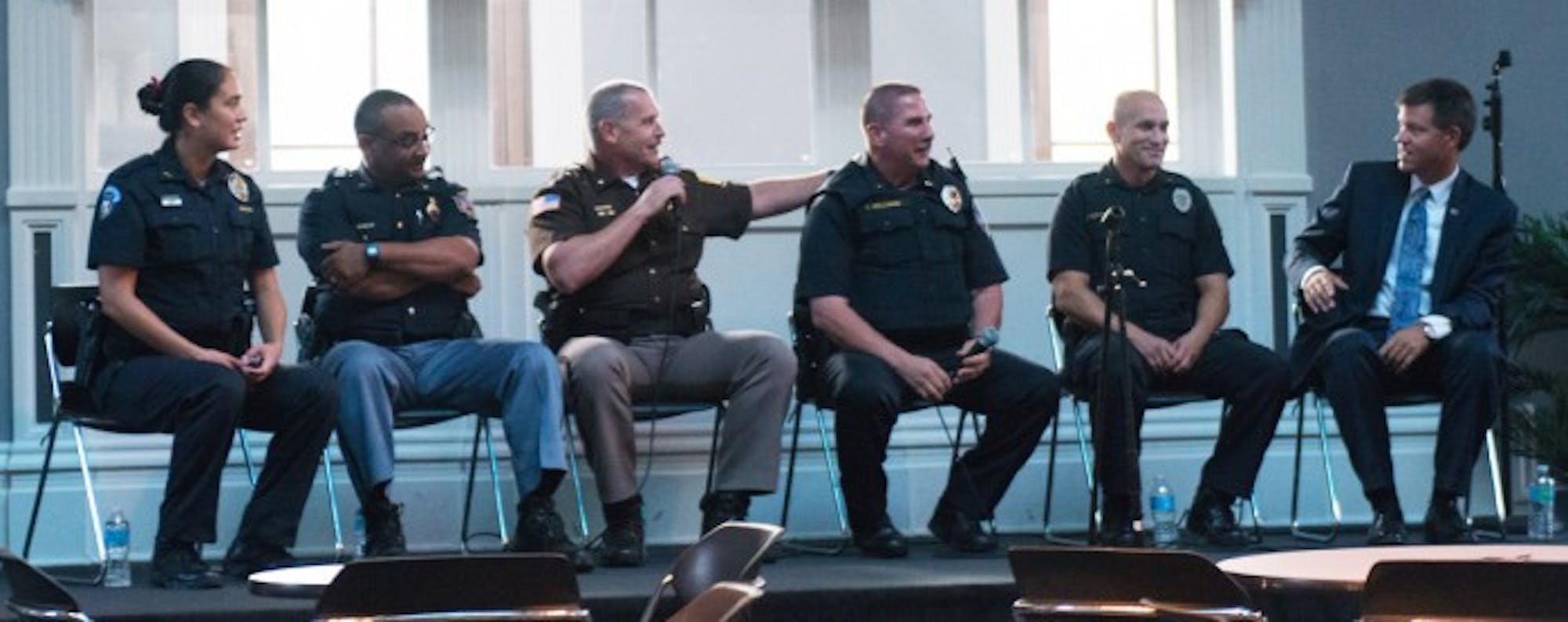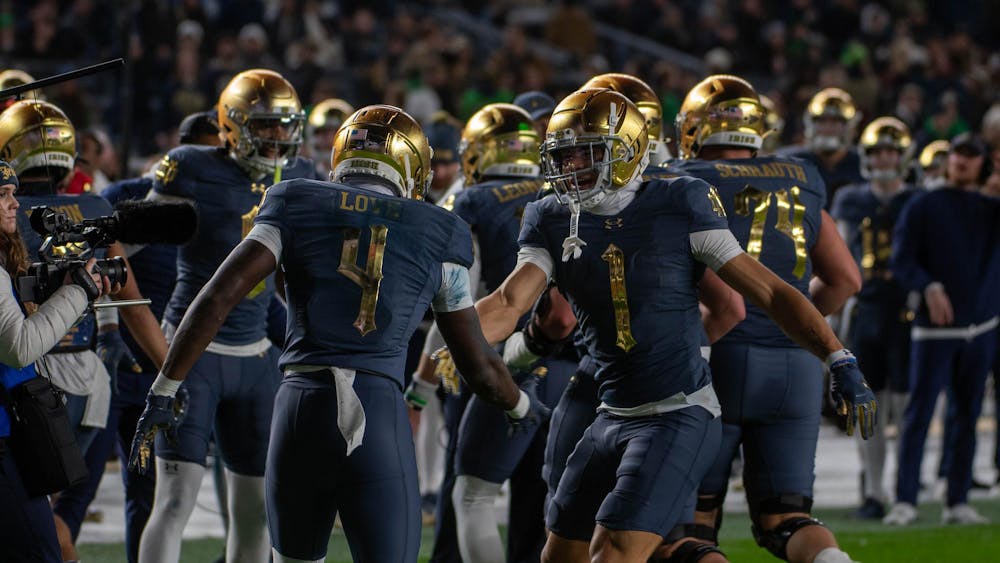The annual student safety summit took place Monday night in the LaFortune ballroom. During the summit, members of the Notre Dame Security Police (NDSP) and other nearby police forces formed a panel with the goal of teaching students how to be safer on campus and how to maintain a good relationship with nearby police officers and neighbors.

Peter St. John
Peter St. John
Student body president Corey Robinson and Off-Campus Council president Michelle Lacouture opened the summit by introducing the panel.
“I hope we take this time to learn how we can be better members of the South Bend community,” Lacouture said.
Assistant police chief for the uniform division of the Mishawaka Police Department Jason Stefaniak said the police department and the student body are partners.
“We are your friends, we are your partners, we are here to serve you,” he said. “Just be patient with us, I know you watch the news and don’t always get the most positive image of us. … We’re on your side — be on our side.”
St. Joseph County sheriff Michael Grzegorek said his goal is not to ruin the college experience, but to enhance it.
NDSP chief Keri Kei Shibata said students should always have a plan, even though Notre Dame’s campus is particularly safe and physical harm is uncommon.
“You all have such a big role to look out for each other, whether it’s going out for the evening or going on a trip together,” she said. “Have a plan, have a backup plan and stick to that plan.”
Stefaniak said the most frequent crime on campus is theft, and it often occurs due to personal property being left unattended in public spaces, as well as dorm room doors being left unlocked.
Grzegorek said said students should not be worried if police arrive at an off-campus party.
“[The first response will be] just to tell you to turn the music down,” he said. “The only way that’s going to get worse is if you can’t take care of it.
“Make sure it’s someone that’s 21 and relatively sober that comes [to open the door], who can talk reasonably with us and say, ‘We’ll take care of the problem.’”
Lt. Tim Williams of the Mishawaka Police Department said a student’s conduct when being pulled over for a traffic violation is also important.
“With everything that’s been happening in the news, everyone’s afraid of getting pulled over by a police officer,” he said, “We’re pulling you over for a reason. … That’s not the time for you to argue that you weren’t doing anything wrong.”
Williams said all police cars have dashboard cameras to record traffic stops.
“If you think you were wronged, don’t argue it with the police officer,” he said. “ ... Whatever you say is going to be recorded. It’s there for your protection, but it’s for our protection too. … If you’re respectful of the officer, we’ll let you go with a warning.”
Stefaniak said the number of officers involved in any particular traffic stop is not necessarily indicative of the seriousness of the violation.
“If there are three cars there it isn’t because of who you are or what you did,” he said. “It’s because two more officers are doing his job or her job.”
In case of an active shooter on campus, Shibata said she would communicate as much as possible via ND Alert, making sure students know where to go.
“The best thing you can do is first figure out where the problem is and get away from it, if you possibly can,” Shibata said. “If the violence is between you and your only exit, close the door, lock the door, be ready to throw chairs.”
Shibata said students should not carry weapons — such as tasers — when walking home late at night because people who would commit crimes would likely take the weapon from the victim and use it against him or her.
“Use your personal weapons,” Shibata said. “Your hands, your brains, your voice.”









